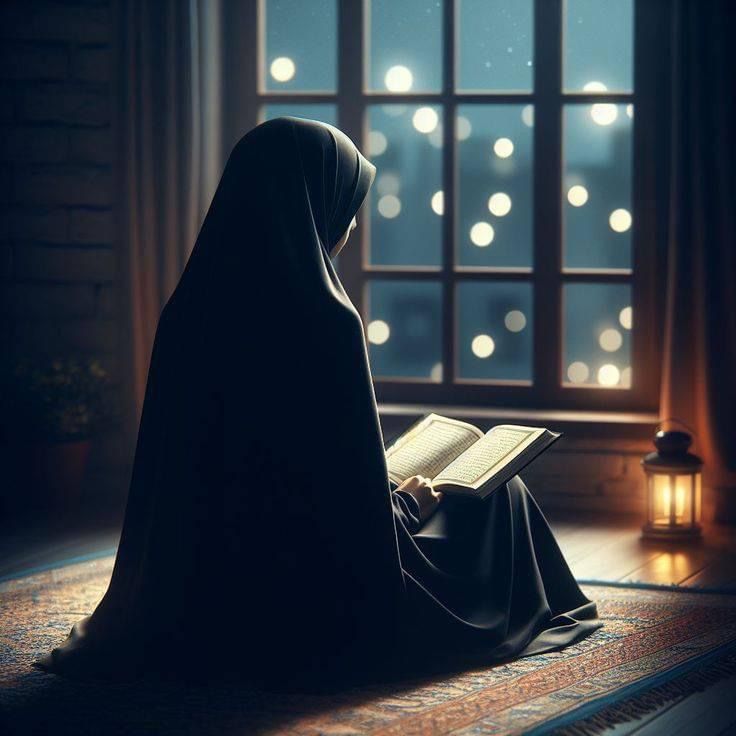
Evening Adhkar for Peaceful Sleep
In the hustle of modern life, many of us struggle with restless nights and poor sleep quality. Islamic tradition offers a beautiful solution through evening adhkar—a collection of supplications and remembrances from the Sunnah that not only prepare us spiritually for rest but also help create the perfect conditions for peaceful, restorative sleep.
The Significance of Evening Remembrance
The transition from day to night holds special importance in Islamic tradition. As the sun sets, we enter a time when the spiritual and physical worlds experience a shift. The Prophet Muhammad ﷺ was particularly diligent about his evening adhkar, using this crucial time to:
- Seek protection from the dangers of the night
- Express gratitude for the blessings of the day
- Prepare spiritually for sleep, which is a minor death (as mentioned in hadith)
- Set a positive intention for the night and coming day
"Whoever recites Surah Al-Kahf on Friday, a light will shine for him between the two Fridays."— Narrated by Al-Hakim
While this hadith specifically refers to Friday, many scholars recommend reading portions of Surah Al-Kahf in the evening as a general practice of barakah (blessing).
Spiritual & Physical Benefits of Evening Adhkar
Spiritual Protection
Evening dhikr creates a shield of divine protection around you as you enter the vulnerable state of sleep.
Mental Unwinding
The rhythmic, meditative nature of dhikr helps transition the mind from activity to rest.
Angels' Presence
Multiple hadiths indicate that angels gather and remain where Allah is remembered, providing company and protection.
Better Sleep Quality
Research shows that spiritual practices before bed can reduce anxiety and improve sleep architecture.

Essential Evening Supplications from the Sunnah
The Prophet Muhammad ﷺ taught us specific supplications to recite in the evening and before sleep. Here are three powerful evening adhkar that you can incorporate into your nightly routine:
بِاسْمِكَ اللَّهُمَّ أَمُوتُ وَأَحْيَا
Bismika Allahumma amootu wa ahya
In Your name, O Allah, I die and I live.
اللَّهُمَّ قِنِي عَذَابَكَ يَوْمَ تَبْعَثُ عِبَادَكَ
Allahumma qini 'adhabaka yawma tab'athu 'ibadak
O Allah, save me from Your punishment on the Day You resurrect Your servants.
اللَّهُمَّ بِاسْمِكَ أَحْيَا وَأَمُوتُ
Allahumma bismika ahya wa amoot
O Allah, in Your name I live and die.
Additionally, the Mu'awwidhat (the last three surahs of the Quran) hold special significance for evening protection:
The Three Quls
The Prophet ﷺ would cup his hands together every night before sleeping, recite Surah Al-Ikhlas, Al-Falaq, and An-Nas, then blow into his palms and wipe them over his body, starting with his head and face and then the rest of his body, doing this three times.
Creating a Bedtime Routine of Remembrance
Consistency is key when establishing a nightly routine of adhkar. Here's a recommended sequence that incorporates Prophetic practices:
- Begin with wudu (ablution). The Prophet ﷺ said: "Purify these bodies and Allah will purify you." Sleeping in a state of ritual purity is highly recommended.
- Recite Ayatul Kursi (2:255). The Prophet ﷺ said that whoever recites this before sleeping will have a guardian from Allah protecting them until morning.
- Recite the last two verses of Surah Al-Baqarah. These verses are a protection for whoever reads them at night.
- Recite the Mu'awwidhat (Three Quls). As mentioned above, with the blowing and wiping.
- Sleep on your right side. The Prophet ﷺ recommended this position, which modern science has shown can reduce acid reflux and improve heart circulation.
- Recite the specific sleep supplications. Including those mentioned earlier in this article.
Addressing Sleep Challenges Through Adhkar
Different sleep issues can be addressed with specific forms of remembrance:
For Anxiety and Racing Thoughts
The repetitive recitation of "SubhanAllah" (Glory be to Allah) can create a meditative effect that calms an overactive mind. Set a target number, such as 33 or 100 repetitions.
Modern Connection: This practice is similar to mindfulness counting techniques used in contemporary sleep therapy.
For Nightmares or Fear
The Prophet ﷺ taught: "If any one of you sees a dream that he dislikes, let him blow to his left three times, seek refuge with Allah from the Shaytan three times, and turn over from the side on which he was sleeping."
Modern Connection: Changing sleep positions can alter REM sleep patterns, potentially interrupting negative dream cycles.
For Chronic Insomnia
A comprehensive approach involves reading Surah Al-Mulk before bed, which the Prophet ﷺ indicated serves as a protector until morning, followed by structured dhikr of the 99 Names of Allah.
Modern Connection: Rhythmic recitation creates sound frequencies that can entrain brainwaves to slower, sleep-conducive patterns.
Teaching Children the Gift of Evening Dhikr
One of the most beautiful gifts we can give our children is the habit of connecting with Allah before sleep. Here are age-appropriate ways to introduce evening adhkar to children:
- Ages 3-5: Simple, short phrases like "Bismillah" before bed, with explanation that we're asking Allah to watch over us while we sleep.
- Ages 6-9: Add the Three Quls with translation, explaining them as a "special shield" that protects during sleep.
- Ages 10+: Introduce the concept of evening adhkar as a comprehensive practice, including the benefits and the connection to the Prophet's ﷺ example.
Making bedtime dhikr interactive and meaningful—rather than a chore—helps children develop a positive relationship with these spiritual practices.

Conclusion
In an age where sleep disorders are increasingly common and sleep quality is compromised by digital devices and constant stimulation, the Islamic practice of evening adhkar offers a profound yet practical solution. By reviving this Sunnah, we not only follow the beautiful example of our Prophet ﷺ but also invite tranquility, protection, and barakah into our nights.
Remember that consistency is more important than quantity. Even if you begin with just one or two of these supplications each night, the regular practice will gradually transform your evenings and improve your sleep quality, while strengthening your connection with Allah during the quiet hours of the night.
"In the name of Allah with Whose name nothing can harm on earth or in heaven, and He is the All-Hearing, All-Knowing."— Evening dhikr recommended to be recited three times